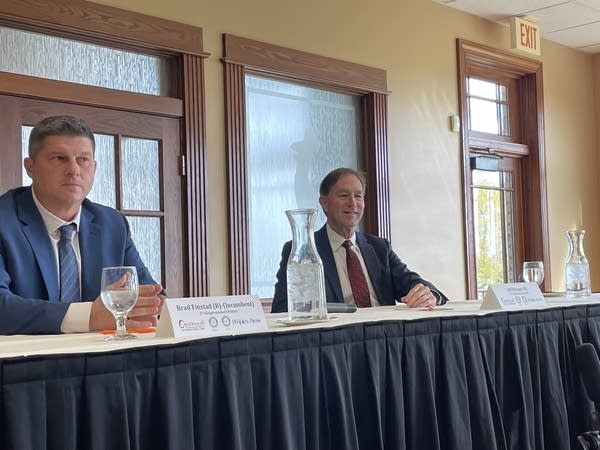1st District candidates disagree (and agree) agreeably

Rep. Brad Finstad (left) and Jeff Ettinger held a campaign debate at the Owatonna Country Club on Monday. Finstad, a Republican won a special session in August against DFLer Ettinger and the two are facing off again.
Mark Zdechlik | MPR News
Go Deeper.
Create an account or log in to save stories.
Like this?
Thanks for liking this story! We have added it to a list of your favorite stories.


